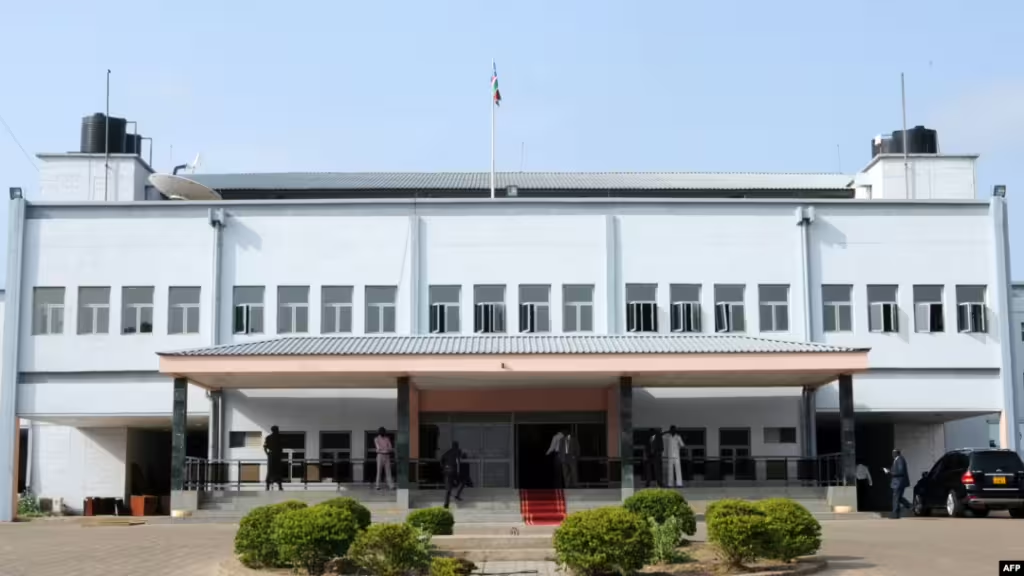South Sudan’s Justice and Constitutional Affairs Minister Justice Ruben Madol Arol on Monday tabled the United Nations Convention against Transnational Organized Crime and the protocol thereto, before the Transitional National Legislative Assembly (TNLA) after being passed by the Council of Ministers.
According to the minister, the convention adopted by UN General Assembly resolution 55/25 on 15 November 2000, is aimed at fighting against transnational organized crime.
It opened for signature by member states at a high-level political conference convened for that purpose in Palermo, Italy, on 12-15 December 2000 and entered into force on 29 September 2003.
Minister Madol said the Convention is supplemented by three protocols that target specific areas and manifestations of organized crime.
“The Protocol to Prevent, Suppress and Punish Trafficking in Persons, especially Women and Children; the Protocol against the Smuggling of Migrants by Land, Sea and Air; and the Protocol against the Illicit Manufacturing of and Trafficking in Firearms, their Parts and Components and Ammunition,” he said. “It is normally a must that countries become parties to the Convention before they can become parties to any of the Protocols.”
The Convention represents a major step forward in the fight against transnational organized crime and signifies the recognition by member states of the seriousness of the problems posed by it, as well as the need to foster and enhance close international cooperation to tackle those problems.
It is worth noting that once South Sudan ratifies the Convention, it will be required to embark on measures that fight or prevent transnational organized crimes.
“States that ratify this instrument commit themselves to take a series of measures against transnational organized crime, including the creation of domestic criminal offenses (participation in an organized criminal group, money laundering, corruption and obstruction of justice); the adoption of new and sweeping frameworks for extradition, mutual legal assistance and law enforcement cooperation; and the promotion of training and technical assistance for building or upgrading the necessary capacity of national authorities,” Madol stated.
The Protocol to Prevent, Suppress, and Punish Trafficking in Persons, especially Women and Children, was adopted by General Assembly resolution 55/25. It entered into force on 25 December 2003. It is the first global legally binding instrument with an agreed definition of trafficking in persons. The protocol is to facilitate convergence in national approaches concerning the establishment of domestic criminal offenses that would support efficient international cooperation in investigating and prosecuting trafficking in persons’ cases.
Meanwhile, the Protocol against the Smuggling of Migrants by Land, Sea and Air, adopted by General Assembly resolution 55/25, entered into force on 28 January 2004. It deals with the growing problem of organized criminal groups who smuggle migrants, often at high risk to the migrants and great profit for the offenders.
Minister Madol further urged the parliamentarians to deliberate and ensure the convention is ratified, since it has no financial obligation attached to it, but rather guarantees the Country from organized crimes.
Upon the presentation of the bill, TNLA Speaker Jemma Nunu Kumba committed it to the specialized committee of Legislation and National Security and Public Order and that of Legislation and Justice, for scrutiny and asked them to report to the House in 14 days.




